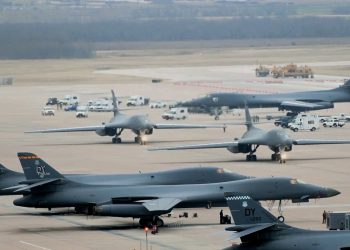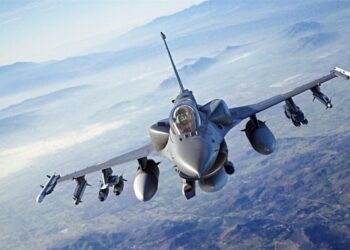US Air Force,
RANDOLPH AIR FORCE BASE, Texas: The commander of the Polish air force visited several Air Education and Training Command locations during a visit to the United States Jan. 6-8.
Lt. Gen. Andrzej Blasik, a 22-year veteran, was here primarily to focus on the Polish air force's F-16 Fighting Falcon and C-130 Hercules implementation programs.
During the visit, General Blasik received command briefings from AETC headquarters officials, visited Polish officers undergoing training at Randolph, toured Lackland Air Force Base, Texas, and then traveled to Tucson, Ariz.; Davis-Monthan AFB, Ariz.; and Little Rock AFB, Ark., to view training operations there.
The general, along with his delegation, looked at the possibility of booking training slots for F-16 and C-130 pilots while also seeking to establish a timetable for the technical and maintenance crew training programs. The Polish air force's training program is still being developed, so it relies on the U.S. Air Force's support at this time. He also used his visits to the U.S. training locations in order to focus on improving Polish training facilities.
Only one day into his visit, General Blasik noticed some similarities and differences between the U.S. and Polish air forces.
“One of the major differences I have observed so far is the organizational structure of the U.S. Air Force flying units, which is based on tactical wings with air bases having command over subordinated squadrons,” the general said. “The main structure in the Polish air force is an air brigade with direct command over the air squadrons and air bases.”
General Blasik noticed some positive aspects of the U.S. Air Force that he said the Polish air force intends to emulate.
“We (are focused) on transferring the Polish air force into a more mobile and deployable structure, as the U.S. Air Force is now,” the general said, adding that the Polish air force will expand its international engagement with the F-16 component declared to NATO forces in 2012.
General Blasik said his air force intends to develop a new manning process which focuses on getting a force of 100 percent professional soldiers while having a systematic resignation of conscripted personnel.
The general also discussed his country's potential purchase of an advanced trainer, indicating such a decision would help in the goal of having a self-reliant national training program by 2012.
Overall, Poland's top air force officer was very pleased with the chance to visit and discuss issues he faces with the U.S. Air Force's top training officials.
“We appreciate being able to have these discussions with such experienced personnel, because we gain some knowledge which will be very useful in helping us establish our flying training unit,” General Blasik said.









